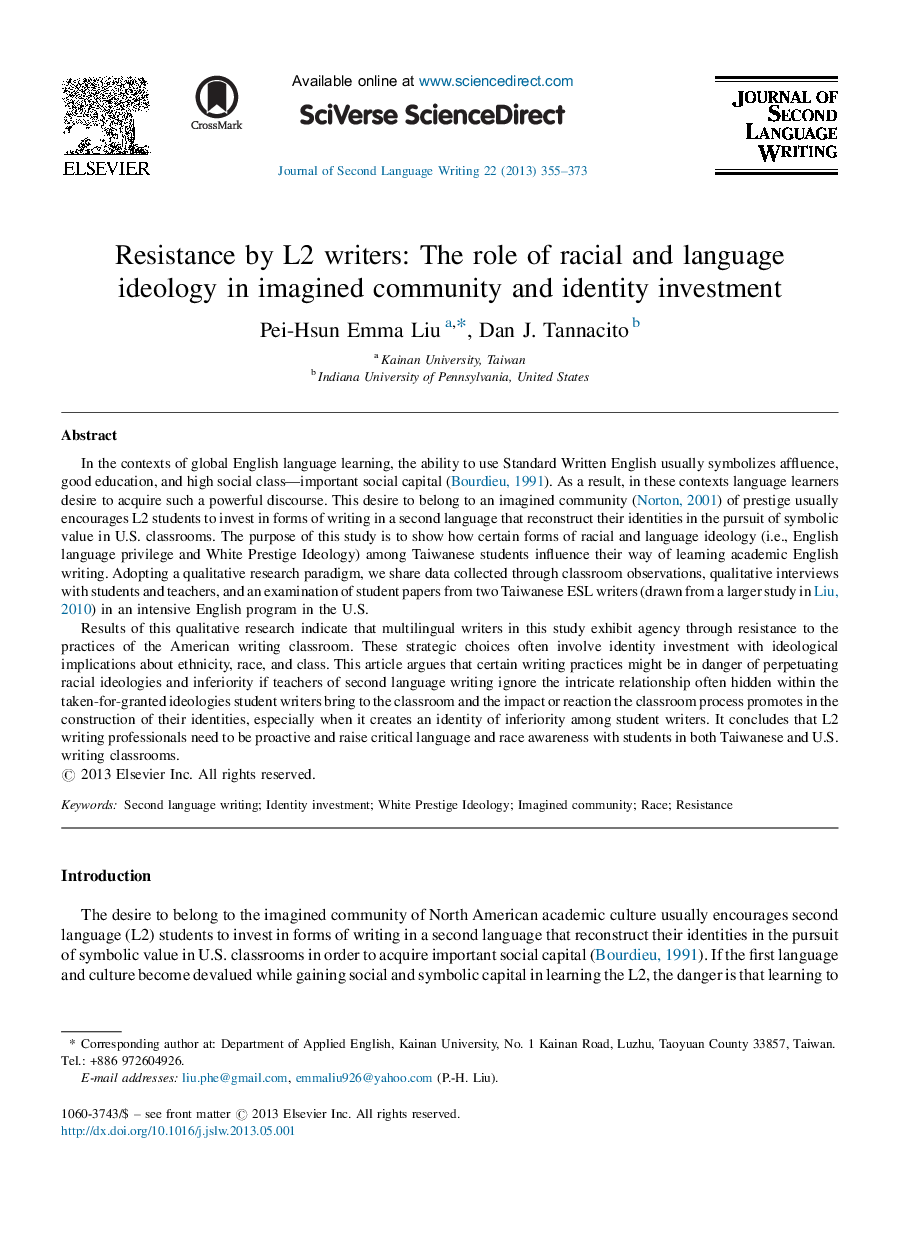| کد مقاله | کد نشریه | سال انتشار | مقاله انگلیسی | نسخه تمام متن |
|---|---|---|---|---|
| 364021 | 620947 | 2013 | 19 صفحه PDF | دانلود رایگان |

• The study takes into account the issue of race in English language teaching/learning.
• It qualitatively examines student whiteness and resistance in L2 writing practices.
• It shows that language/racial ideologies result in inferiorization in L2 writing.
• L2 writing professionals are urged to promote racial and language equality.
In the contexts of global English language learning, the ability to use Standard Written English usually symbolizes affluence, good education, and high social class—important social capital (Bourdieu, 1991). As a result, in these contexts language learners desire to acquire such a powerful discourse. This desire to belong to an imagined community (Norton, 2001) of prestige usually encourages L2 students to invest in forms of writing in a second language that reconstruct their identities in the pursuit of symbolic value in U.S. classrooms. The purpose of this study is to show how certain forms of racial and language ideology (i.e., English language privilege and White Prestige Ideology) among Taiwanese students influence their way of learning academic English writing. Adopting a qualitative research paradigm, we share data collected through classroom observations, qualitative interviews with students and teachers, and an examination of student papers from two Taiwanese ESL writers (drawn from a larger study in Liu, 2010) in an intensive English program in the U.S.Results of this qualitative research indicate that multilingual writers in this study exhibit agency through resistance to the practices of the American writing classroom. These strategic choices often involve identity investment with ideological implications about ethnicity, race, and class. This article argues that certain writing practices might be in danger of perpetuating racial ideologies and inferiority if teachers of second language writing ignore the intricate relationship often hidden within the taken-for-granted ideologies student writers bring to the classroom and the impact or reaction the classroom process promotes in the construction of their identities, especially when it creates an identity of inferiority among student writers. It concludes that L2 writing professionals need to be proactive and raise critical language and race awareness with students in both Taiwanese and U.S. writing classrooms.
Journal: Journal of Second Language Writing - Volume 22, Issue 4, December 2013, Pages 355–373